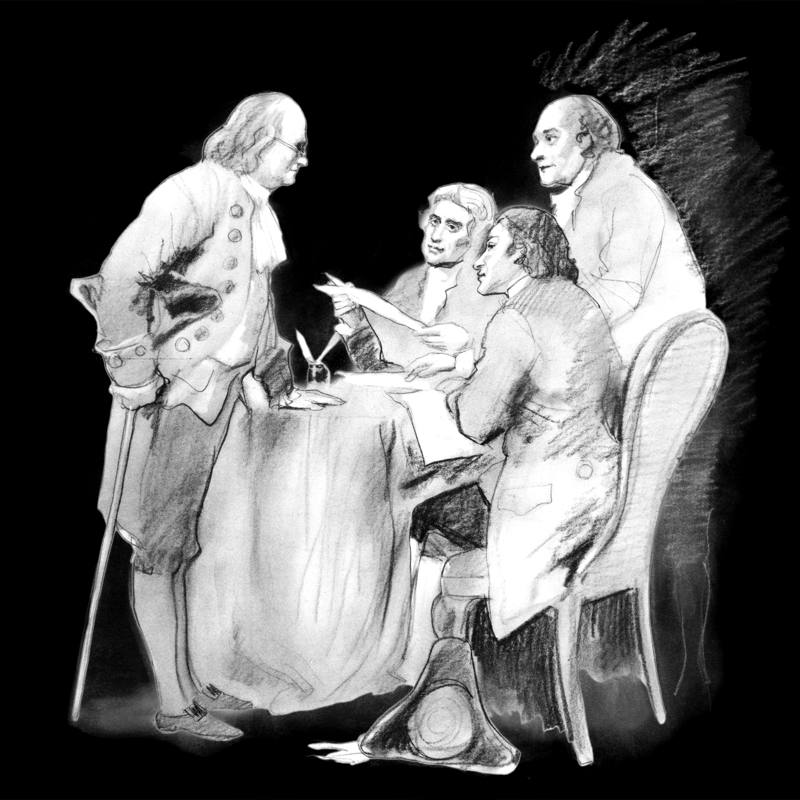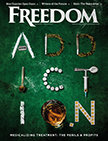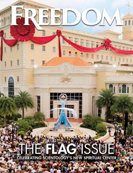The Church of Scientology: A Fierce Freedom of Information Advocate

This is a war that never ends: Citizens want to know what government is doing, and government tries to put a lid on information.
Sixty years ago, a Democratic Congressman from California, John Moss, launched the effort to peel back that lid in the federal government. Bureaucrats during the Cold War, with knee-jerk obsession, had started stamping everything “secret,” and citizens rightfully were outraged at their servants in government.
Moss’ anti-secrecy legislation stalled until the mid-1960s—it was bitterly opposed by President Lyndon Johnson and every federal agency and department. But when the Freedom of Information Act (FOIA) was signed into law on July 4, 1966, even LBJ capitulated: “I sign this measure with a deep sense of pride that the United States is an open society.”
But it wasn’t completely—and not yet. The landmark act remained ineffectual until after the Watergate Scandal revealed the culture of secrecy and political corruption that pervaded government. In the 1970s, FOIA finally got a watchdog’s teeth.
The interim fight for openness involved heavy political jousting. Moss and many, many Democratic and Republican members of Congress, as well as presidents and their aides, endorsed open government. Many others trenchantly opposed the FOIA. And still more were mule-like in their stubbornness at making the wheels of transparency grind as slowly as possible.
What broke what could have been a protracted and anti-democracy stalemate was the activism of citizens. And high on the list of champions of FOIA and other government transparency measures was the Church of Scientology.
Beginning in the 1970s, the Church established itself as a leader in the promotion and utilization of the FOIA to protect not just the rights of Scientologists, but those of all citizens.
“The Church passionately supports open government,” says Bill Walsh, a Washington, D.C., attorney who has represented Scientology in many matters related to the FOIA. “We have literally made available to the public hundreds of thousands of pages of documents.”
To share its acquired expertise in using the FOIA, the Church in 1976 published and widely distributed A Citizen’s Guide to the FOIA. And starting in 1975, Freedom Magazine launched a campaign that increased public awareness of the transparency law, and inspired citizens to use the FOIA for themselves.
Scientology’s Freedom Magazine also availed itself of the FOIA, carrying out a campaign in the 1970s and 1980s that found and exposed harmful drug tests and biological warfare experiments carried out by the United States Government on unwitting citizens. (See “How Will the World Speak my Name…”)
The Church also used the FOIA to reform government agency procedures. In May 1991, in a FOIA case against the Internal Revenue Service, a federal court stated, “Communications between the IRS and the Church indicate that this litigation contributed to the IRS’ decision to review its procedures and that resulting improvements in these procedures will enable better handling of over 1,000 cases involving identical legal issues.“
Cases brought and litigated by the Church of Scientology have led to substantial FOIA reform, including shifting the burden to the government to prove that documents are exempt, and establishing that a government agency must specify what documents are being withheld and on what precise grounds—so that citizens can legally challenge exemption.
Quinlan J. Shea Jr., director of the U.S. Justice Department’s Office of Privacy and Information Appeals under Presidents Ford and Carter, credited the Church of Scientology, along with the American Civil Liberties Union and the Society of Professional Journalists, with having “endeavored to shine more light on government. They—and others—have issued publications on how to use the FOIA, have litigated in the courts and have testified before numerous congressional hearings calling for more openness.”
The Church of Scientology’s relentless advocacy of the FOIA, and of other public access legislation in the United States and many other parts of the world, stems from Scientology Founder L. Ron Hubbard’s unwavering support of transparency, the hallmark of a democratic government.
“Democracy,” he wrote, “depends exclusively on the informedness of the individual citizen.”






























